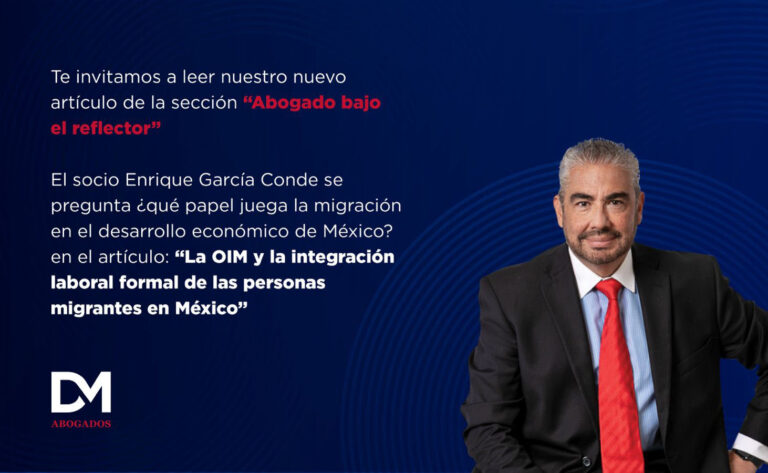Unprecedented changes have taken place since last May 1, when the four years of implementation of the changes in labor matters in Mexico culminated, particularly within the framework of collective relationships, we have seen the emergence of more intense labor dynamics in many senses, from the proliferation of applications for certificates of representativeness to a greater conflictivity in the review committees of Collective Bargaining Agreements (CTC) or in the employee profit sharing processes.
This new and different framework, which could represent a threat to the sustainability of business in the country is, at the same time, an excellent opportunity for getting back to the basics, of rethinking the internal relationship model that we have with our workers and seeking a stronger connection that allows us to face the changes that we are living together, as the relationships between people have always been above regulations.
In this sense, companies have a great opportunity of evolving our work culture, preparing leaders for strengthening their integral role as the ones responsible for results, resources and, particularly, human teams; basically, without people, there is no leadership. This is why there is now an urgent need for consolidating three key competencies in the profile of those that are responsible for human teams in business:
- Anticipation and listening
We are facing many sources of labor risk and, therefore, to the extent that we have a better and greater capacity for identifying what the risk is (potential conflicts), where the risk is located at (sector or geography) and how close it is (workplace environment), we will have the opportunity of preparing more effectively. Having objective information, knowing how to read the signs and learning to monitor risk indicators will be competitive advantages for companies that know how to stay ahead.
- influence and connection
Labor relationships are essentially relationships between people; collective disputes always arise from unmet needs and escalate to the extent that a worker or group of workers feels that there are no answers or that answers are not very empathetic and, therefore, the capability of maximizing contact with the worker, of foreseeing their needs and having an authentically human relationship can make all the difference for any organization, not only in regard to unions, but it will also have a positive impact on its productivity and work environment.
- Building networks of trust
The worker identifies with and has a greater trust in those who live their same circumstances, are we capitalizing on this? Trust can be the best and sometimes the only shield against work environment risks and, therefore, consolidating internal relationships based on transparent communication, the development of psychologically safe environments and a genuine interest in one another is a priority for companies, not only because this allows everyone to enjoy their work to a greater extent, but because, otherwise, we will be more vulnerable in face of the growing conflictivity.
We live in an era in which human matters are becoming the central focus of business, surely this has always been the case, but all of the circumstances and challenges that we have experienced lately have generated a greater sensitivity and awareness in us and, therefore, the effectiveness of companies in handling their “people or person” issues can no longer continue to be the sole concern of Human Resources.
The only way of defending companies and ensuring labor peace is seeking to ensure that every leader within the business understands the impact that his relationship with people can have on the organization’s risk map.




